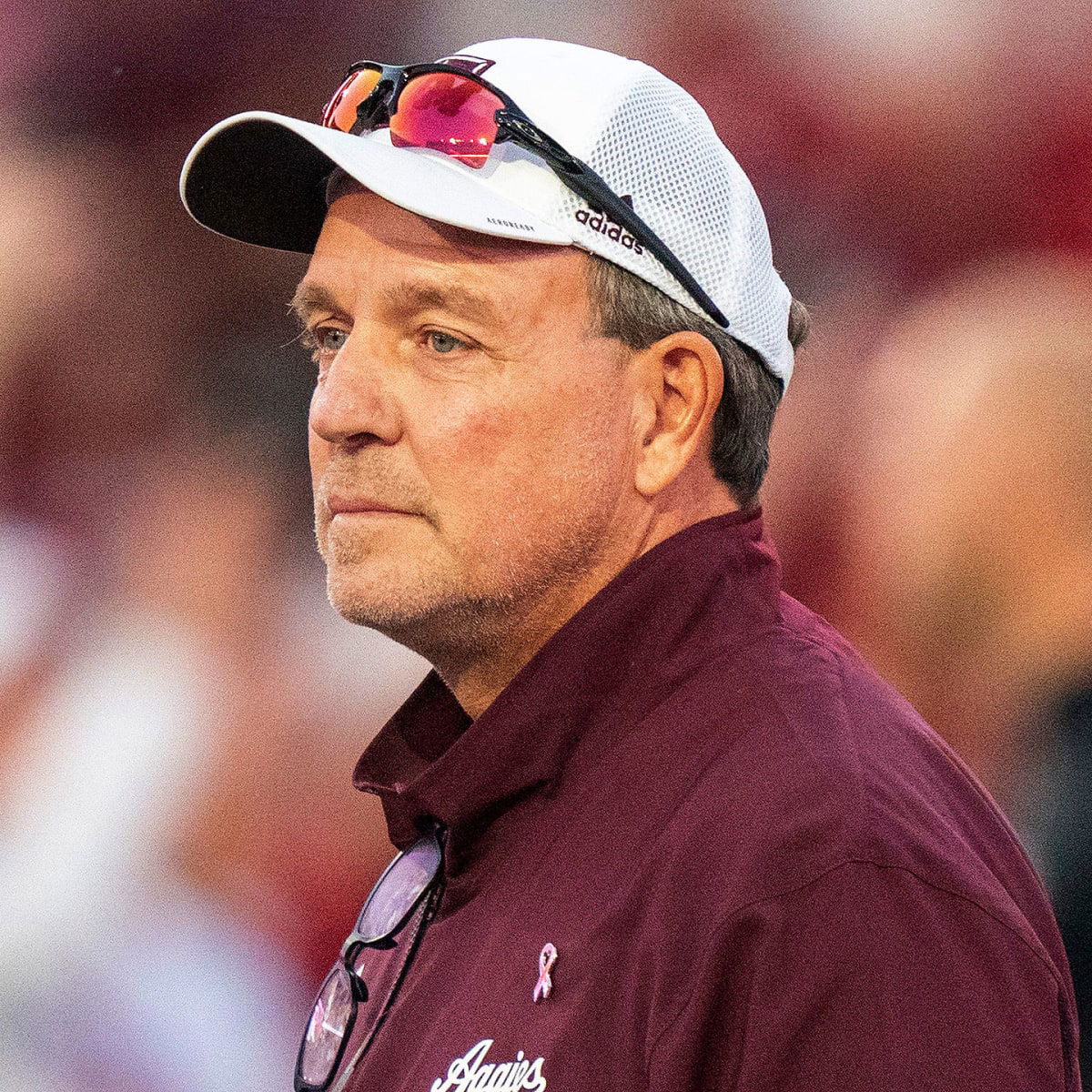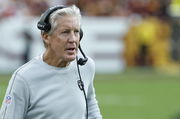
Imago
Image Credits : Imago

Imago
Image Credits : Imago
Just when fans thought Jimbo Fisher’s association with Texas A&M could not reap any more trouble, it did. A former college athlete has filed a lawsuit against the NCAA with Fisher’s buyout at the center. Lawsuits surrounding NIL: Name, image, and likeness deals are not rare for the NCAA, but this prospective lawsuit can significantly change the NCAA and college sports world.
Watch What’s Trending Now!
The lawsuit questions Texas A&M spending more than $75 million on a buyout of a ‘fired’ coach, instead of using the money for the welfare of college athletes. It challenges the entire money model of the association.
ADVERTISEMENT
RB Alex Fontenot brings trouble for the NCAA
Former Buffs RB Alex Fontenot has filed a class-action lawsuit against the Power Five conferences and NCAA, as Federal court records show. The suit is against the model that prohibits the athletes from receiving compensation from schools and leagues, as it violates antitrust law.
However, Fontenot pointed out that the big conferences are raking in millions of dollars from broadcast deals for college football and basketball, while none of the athletes see any of this money. “If that type of money can go to a fired coach, then surely the players on the team can be fairly compensated,” Fontenot believes.
Top Stories
Cowboys Fire Defensive Coordinator Matt Eberflus: Contract, Salary, NFL Earnings & More

Russell Wilson Announces Retirement Stance as Giants QB Shares Hidden Injury News

Dolphins Reportedly Indecisive About Mike McDaniel as GM Search Kicks Off

Joe Flacco Makes Retirement Decision Clear as Bengals QB’s Final Gesture for Ja’Marr Chase Draws Attention

Pete Carroll Makes Final Decision on Retirement as Tom Brady Set to Fire Raiders HC

With Fisher’s buyout being directly pointed at in the lawsuit, it might end with the NCAA prohibiting such a large compensation for him or the University itself might pull the offer for a smaller amount. Given that Fisher was essentially fired from the position on November 13th and the school owes him $76 million, many questions are being asked. As per reports, his stubbornness to change was a problem. He even waited until Year 6 to hire an offensive coordinator for the team.
ADVERTISEMENT
One line from the suit (filed yesterday) that jumped out, on the Jimbo buyout:
"If that type of money can go to a fired coach, then surely the players on the team can be fairly compensated."— Matt Baker (@MBakerTBTimes) November 21, 2023
In 2021, the NCAA relaxed some restrictions on players receiving compensation from advertising and merchandising, but compensation directly from the association to student-athletes is still completely forbidden. The suit, which was filed yesterday, might bring about a wave of change in the conference.
ADVERTISEMENT
What does the lawsuit say?
The US District Court in Colorado mentioned the following points from the suit filed on Monday. “It focuses on the ever-increasing television revenue and other revenue brought in by these athletes’ labor, of which the athletes would be entitled to receive a substantial portion, but for the NCAA’s rules.”
ADVERTISEMENT
The lawsuit also elaborates on the gigantic heights broadcasting rights have reached this year, and how the college football playoff revenues are also highly likely to reach new peaks in the upcoming time. It also seeks to certify a class of student-athletes with full athletic scholarships in football, men’s basketball, or women’s basketball at the top level for U.S. colleges.
It highlights that none of the revenue made from broadcasts is flowing towards the athletes. “But the current state of college athletics has put the proverbial nail in the coffin for the NCAA’s amateurism argument,” states the lawsuit. This has the potential to bring about a rather major change in the NCAA model. What do you think?
Watch this story: Coach Jim Harbaugh Sets The Record Straight On Michigan’s Sign-Stealing Incident
ADVERTISEMENT
ADVERTISEMENT
ADVERTISEMENT
ADVERTISEMENT

